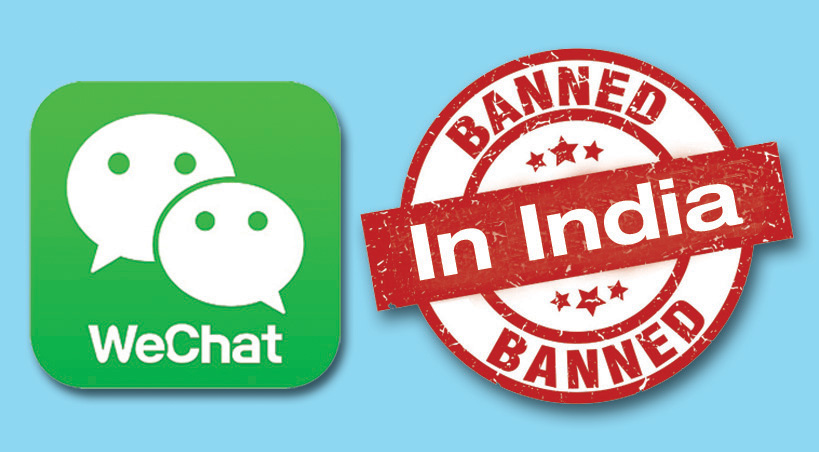After Government Of India Ban Chinese APPs, WECHAT Exits India

WeChat, Chinese super-app has officially stopped operations in India after being banned by the country over privacy fears.
A notice sent by WeChat on Saturday to a number of Indian users, who found themselves locked out of the app said, “Pursuant to Indian law, we are unable to offer you WeChat at this time. “We value each of our users, and data security and privacy are of utmost importance to us. We are engaging with relevant authorities and hope to be able to resume service in the future.”
Let’s have a look Why is this happening?
In India’s Ministry of Electronics & Information Technology’s banned 58 mobile apps from Chinese companies including We Chat and Tik Tok
After the Indian Army and Chinese troops fought each other in a deadly encounter along the two nations’ disputed Himalayan border on June 15. In India, there were online protests in India encouraging the boycott of a range of Chinese-made goods, from apps to smartphones,
In India as of early 2020, Chinese brands like Xiaomi, Oppo, Vivo, Realme, and OnePlus controlled over 80% market share. Two of these brands are major sponsors of cricket in the country.
India imports almost 70% of its bulk drugs and intermediates, 37% of electronic components, 45% of consumer electronics, and 44% of air conditioner and refrigerator parts from China.
On the economic front, bilateral trade has rapidly expanded between the two nations to the value of $85-$95bn in recent years, despite China being the third-largest market for Indian exports in 2019, the trade deficit of US$50bn is largely in China’s favor.
All over the world, Chinese apps are under scrutiny. After accusing the platform of sharing information with the Chinese government. In the United States, Donald Trump’s government is threatening to ban Tik Tok. The platform announced it would exit the Hong Kong market within days, following China’s establishment of a sweeping new national security law in Hong Kong.